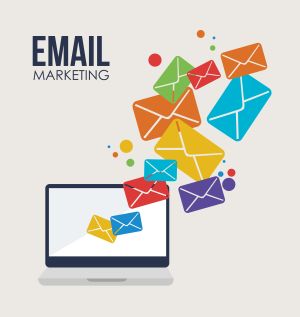Tag: marketing eye - Page 9
Why Marketing Teams Need to Embrace a Team-First Mentality
Marketing is a crucial aspect of any business, as it helps companies to reach new customers, build brand awareness and drive sales. However, to succeed in this fast-paced industry, it's essential that marketing teams embrace a team-first mentality.
The Role of Chatbots and GPT in Enhancing Customer Engagement and Experience in Marketing
Companies are constantly seeking new and innovative ways to engage with their customers and provide them with a seamless and enjoyable experience. With the rise of artificial intelligence and machine learning, chatbots and GPT (Generative Pretrained Transformer) have emerged as powerful tools for enhancing customer engagement and experience in marketing.
How to create a successful brand ambassador program
A brand ambassador program is a marketing strategy where a company partners with individuals who are influential in their respective communities to promote its products or services.
How to measure and improve customer satisfaction in your marketing strategy
Customer satisfaction is a critical component of any successful marketing strategy, as it directly impacts the success of a business. The level of satisfaction a customer experiences can affect everything from repeat purchases and brand loyalty to word-of-mouth recommendations and overall revenue.
The Impact of Mobile Marketing on Consumer Behaviour
Mobile marketing has had a significant impact on consumer behaviour in recent years. With the widespread use of smartphones and mobile devices, businesses have been able to reach their target audiences in new and innovative ways. From SMS and MMS messaging to mobile apps and social media, mobile marketing has become an essential tool for engaging with consumers. By understanding the impact of mobile marketing on consumer behavior, businesses can develop more effective strategies to reach and engage with their target audience.
The ethics of targeted advertising and data privacy
Targeted advertising and data privacy are two extremely important and very closely interconnected issues in the digital age. Targeted advertising focuses on specific traits, interests, and preferences of consumers. For example, with Amazon when a consumer searches for a new Paul McCartney CD, Amazon creates a file called a cookie on the consumer’s device to keep track on them. Later when the consumer reads an article, the cookie is automatically read, and different advertisements are generated related to the cookie file on the Paul McCartney CD they previously searched for. Targeted advertisements use data and analytics to show ads to specific groups of people based on their interests, demographics, and behaviours.
The Role of SEO in Driving Website Traffic and Sales
SEO, or search engine optimisation, is the practice of optimising a website or online content to improve its visibility and ranking in search engine results pages (SERPs). This is done by making the website and its content more relevant and valuable to search engines and users.
The Impact of Voice Search on SEO and Content Strategy
Voice search has become increasingly popular in recent years, with the rise of virtual assistants such as Amazon's Alexa and Google Assistant. This has led to a shift in the way people search for information online and has also had a significant impact on SEO and content strategy. With voice search, users tend to use more natural language and longer, more conversational queries. This can make it more difficult for search engines to understand the intent behind the search.
How to use AI to Analyse Customer Data and Create More Effective Marketing Strategies
Artificial intelligence (AI) is a powerful tool that can help businesses analyse customer data and create more effective marketing strategies. In today's digital age, businesses are collecting more data than ever, and making sense of that data is crucial for success. By utilizing AI, businesses can gain valuable insights into customer behaviour and preferences, which can then be used to create targeted and personalized marketing campaigns.
Using AI to improve email marketing campaigns
Email marketing strategies are progressively being enhanced by artificial intelligence (AI). Businesses may use AI-powered solutions to analyse massive volumes of data and forecast client behaviour, allowing them to target their campaigns and customise their content.
AI may be used, for instance, to segment email lists, forecast which recipients will read and interact with emails, and automatically create customised subject lines and content.
AI-based systems may also track and evaluate the performance of previous campaigns and enhance the frequency and timing of email sends. As a result, businesses may boost ROI and the effectiveness of their email marketing efforts by leveraging these features.











